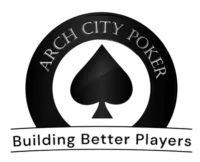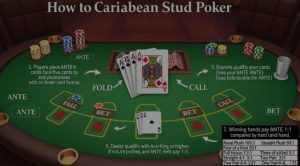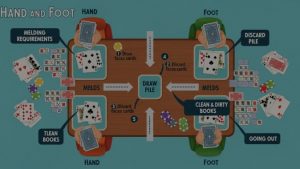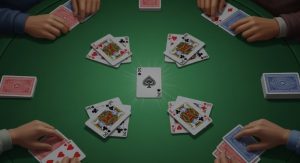The Democratization of Expert Poker Knowledge
The barrier to entry for serious poker education has collapsed over the past fifteen years. Where aspiring players once needed personal connections to top pros or the means to hire expensive coaches, today they can access world-class instruction from anywhere with an internet connection. This shift has fundamentally altered who can become a successful poker player and how quickly they can reach high levels of play.
Online poker schools have systematized the learning process in ways that individual coaches never could. By organizing curriculum into logical progressions and creating libraries of content addressing specific scenarios, these platforms allow students to learn at their own pace while following proven educational pathways. The structure removes much of the guesswork from self-directed study.
Structured Curriculum vs. Random Study
The advantage of formal poker education over piecing together free content lies in the coherence of structured curricula. While YouTube videos and forum posts offer value, they rarely connect into a logical learning progression. Students jumping between disconnected resources often develop gaps in their knowledge that become exploitable weaknesses.
Quality online poker schools design their courses to build on previous lessons, ensuring students master fundamentals before moving to advanced concepts. This scaffolding approach prevents the confusion that comes from trying to learn complicated strategies without knowing the principles behind them. Students progress faster when each lesson prepares them for the next.
Assessment mechanisms built into structured programs help students identify their weak areas. Rather than assuming they understand a concept, students receive feedback through quizzes, hand analyses, and practice scenarios. This accountability keeps learners honest about their actual comprehension levels.
Access to Multiple Teaching Perspectives
Traditional poker learning often meant studying under a single coach whose style and approach might not resonate with every student. Online poker schools typically feature multiple instructors, each bringing their own perspective and teaching methods. Students can find voices that match their learning style and strategic preferences.
Different instructors excel at teaching different aspects of the game. One might present exceptional content on tournament play, while another specializes in cash game strategy. Students benefit from this diversity of expertise, receiving instruction from the best teacher for each topic rather than relying on a single coach’s knowledge across all areas.
The collaborative environment of many online poker schools encourages students to learn from each other as well. Discussion forums and study groups connect learners at similar skill levels, creating peer support networks that reinforce lessons and provide motivation during difficult learning phases.
Video-Based Learning & Hand Analysis
The visual nature of video instruction provides advantages that text-based learning cannot match. Watching an instructor work through a hand in real-time, explaining their thought process at each decision point, gives students insight into how experts actually think during play. This demonstration of applied thinking builds mental models faster than reading about concepts abstractly.
Screen capture technology lets instructors show exactly what they see and think during real poker sessions. Students observe not just the decisions but also the information gathering and analysis that precedes each action. This transparency into the decision-making process helps students develop similar analytical habits.
Hand history review sessions teach students how to analyze their own play effectively. Many players review hands but fail to ask the right questions or consider alternative lines. Watching experts review hands models the analytical process students should apply to their own game examination.
Interactive Training Tools & Software
Modern online poker schools integrate software tools that help students internalize concepts through practice. Range visualizers let students build and analyze hand ranges, developing intuition for range construction. Equity calculators help students verify their assumptions about specific situations, building accuracy in hand reading and decision-making.
Quiz systems test comprehension and help students identify areas needing more study. The immediate feedback these systems provide helps students correct misunderstandings before they become ingrained habits. This active learning approach outperforms passive content consumption for skill development.
Practice drills that simulate specific game situations let students make decisions repeatedly until they achieve consistency. This deliberate practice targets specific skills, similar to how athletes drill particular techniques. The focused nature of these exercises accelerates improvement in targeted areas.
Community & Accountability Features
The social aspects of online poker schools often prove as valuable as the educational content. Being part of a learning community provides motivation during inevitable plateaus and downswings. Students who might quit in isolation persist when they have peers supporting and encouraging them.
Study groups formed within these communities allow students to work through concepts together. Explaining ideas to others reinforces knowledge, while hearing different perspectives on the same material deepens comprehension. This collaborative learning environment mimics the study groups that help students succeed in traditional academic settings.
Accountability systems, either formal coaching check-ins or informal peer partnerships, keep students consistent in their study efforts. The human tendency to procrastinate affects poker study just as it does other educational pursuits. Having someone expect regular progress reports makes students more likely to maintain their learning schedules.
Personalized Learning Paths
Advanced online poker schools offer customized learning experiences based on student goals and current skill levels. A tournament specialist needs different training than a cash game grinder. Platforms that adapt content to individual needs provide more efficient learning experiences than one-size-fits-all approaches.
Diagnostic assessments help schools identify student strengths and weaknesses, directing them to content that addresses their specific needs. Instead of progressing through entire curricula linearly, students can focus on areas where they need improvement while skipping material they have already mastered.
Progress tracking features let students see their development over time. Visualizing improvement provides motivation and helps students connect their study efforts to actual results. This feedback loop encourages continued investment in education.
Real-World Application & Transfer
The gap between classroom knowledge and table performance challenges many poker students. Online poker schools address this through assignments that require students to apply learned concepts in actual games. This bridge between theory and practice helps students develop the skills to use their knowledge under pressure.
Hand submission requirements force students to engage actively with course material. Knowing they must submit hands for review makes students more conscious of their decision-making during play. This heightened awareness during actual games accelerates the transfer of learned concepts to practical application.
Follow-up reviews of submitted hands close the feedback loop. Students see how their attempts to apply concepts are measured against expert analysis, learning from both their successes and mistakes. This personalized feedback proves more valuable than generic course content alone.
Cost-Effectiveness Compared to Private Coaching
The economics of online poker schools make quality education accessible to players who could never afford private coaching. Subscription models spreading costs over time allow players to access instruction from world-class pros for less than the cost of a single hour with a private coach. This affordability removes financial barriers that historically kept many talented players from reaching their potential.
The depth of content available in established online poker schools exceeds what any individual coach could provide. Students gain access to dozens or hundreds of hours of instruction covering every conceivable topic. This library model provides better value than paying hourly for limited private instruction.
The permanence of video content means students can revisit material as needed. Unlike live coaching sessions that happen once, recorded lessons remain available for review whenever students need to refresh their knowledge. This reusability increases the value of each dollar spent on education.
The Track Record of Graduate Success
The proof of online poker school effectiveness lies in the success stories of their graduates. Many of today’s top online players attribute their rise to structured online education. These success stories demonstrate that online poker schools genuinely work for students who commit to the learning process.
The democratization of poker knowledge has created a new generation of players who reached high stakes faster than would have been possible in previous eras. While talent and dedication still determine ultimate success, access to quality education has removed knowledge as a limiting factor for aspiring players.
Tournament final tables and high-stakes cash games now regularly feature players whose primary education came through online poker schools rather than traditional mentorship. This visible success at the highest levels of the game validates online education as a legitimate pathway to poker mastery. The next generation of champions is being forged in these digital classrooms, changing the face of professional poker.





